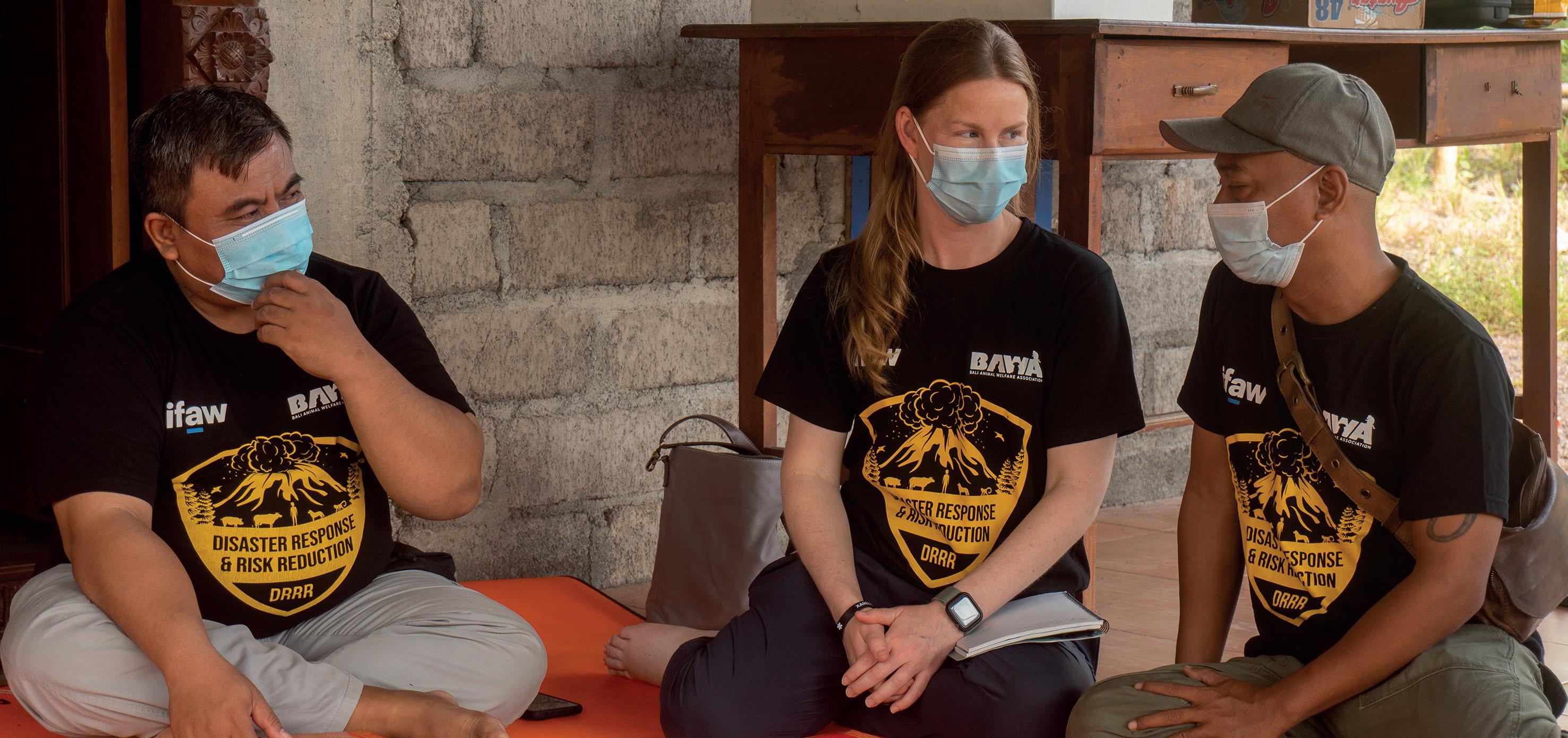
1 minute read
changing minds, saving lives
Jennifer Gardner, Program Manager, Disaster Response & Risk Reduction (DRRR), has gone to disaster-prone areas around the world, working with communities to help them rebuild after disasters hit and, more importantly, prepare for the future. Some of these hardest hit areas are the most remote and without easy access to resources they are often left on their own to recover and prepare for the next disaster.
Indonesia is one of the world’s most vulnerable disaster areas, facing earthquakes, volcanic eruptions, landslides and tsunamis.
Advertisement
Locals had long thought that “practicing” for disasters would bring bad luck, but through direct and consistent dialogue with IFAW, community and government members are enthusiastic to create preparation plans and build resilience for long-term planning.
IFAW has partnered with the Bali Animal Welfare Association (BAWA) to establish its own pilot Disaster Response & Risk Reduction program for communities living near the base of the Mt. Agung and Mt. Abang volcanoes. Prior to this project, most community members could not evacuate with their livestock or companion animals. Jen has worked with more than 680 households to create evacuation plans that include animals.
In 2022, Jen represented IFAW at the 7th Global Platform for Disaster Risk Reduction and spoke on the benefits of including animal health and welfare when building disaster resilience plans. Later that year, residents had the opportunity to practice evacuation and first response techniques, such as constructing emergency shelters and safely loading and unloading livestock from evacuation vehicles.
For communities living near an active volcano, the question is never ‘what if?’ but ‘when?’ Jen continues to empower communities around the world with the blueprint for disaster preparedness; this approach equips them to develop resilience, protect their community and improve the lives of animals and people.
Community engagement is at the heart of IFAW’s solutions. Jen’s work with BAWA is a notable example of how we ensure communities have realistic planning and support that will result in reducing the loss experienced from disasters and improving well-being for people and animals.








